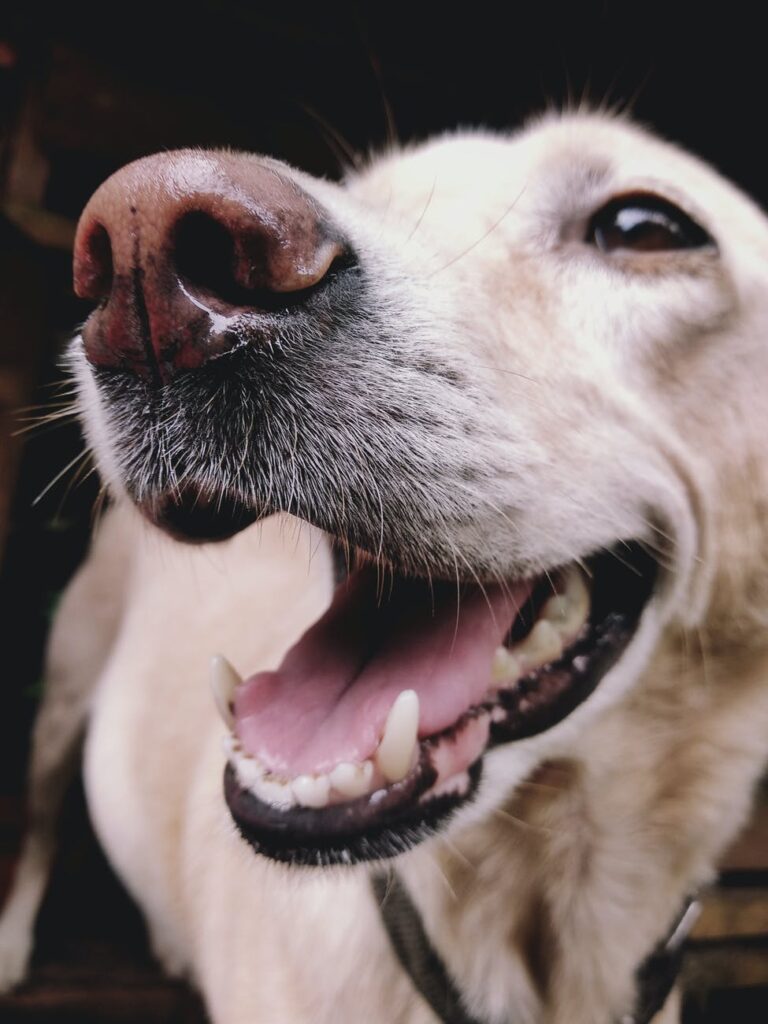A healthy and happy dog is always a smiling one, and while we may do our best to care for their health, it’s not just about a healthy coat and the right diet.
One of the most overlooked aspects is their oral health. Dogs are not prone to dental issues in the way humans are, but dogs can still develop problems with plaque, tartar, and gingivitis. Let’s show you some ways to take the best preventative approaches.

How to Brush Your Dog’s Teeth
It is not just about having the right technique, but it’s about having the right toothpaste. You can find a veterinarian recommended toothpaste for dogs that do not contain xylitol, which is found in many human versions of toothpaste. You should never use human toothpaste for your dog.
Most human toothpaste contains fluoride, which is poisonous to dogs. It is also possible to purchase dog mouthwash. Pet stores provide this simple solution that you can add to water bottles which reduces plaque and kills bacteria.
Just make sure that your dog doesn’t get the whole bottle! And, if it doesn’t bear repeating, you should never use human mouthwashes on your dog!
If you haven’t started brushing your dog’s teeth yet, it may not be easy to achieve right away. Think about the best type of brush, which is a double-headed brush with the brushes at a 45-degree angle. This helps to clean below the gum line.
When brushing their teeth, choose a time when your dog has already exercised so they will sit still. Make sure to do it slowly, but also remember to be calm.
You should reward them with a treat afterward. Remember that your dog needs to look forward to brushing its teeth, so the first two times, try to make it as pleasant as possible.
The Importance of the Right Chew Toys and Bones
This is the natural way your dog strengthens their gums and teeth. But remember you should provide safe objects for them to chew on. Hard objects can break their teeth.
A good bone will keep its teeth strong and get rid of any plaque buildup. It is effective, but it’s only one part of a comprehensive oral hygiene plan.
Knowing the Signs of Dental Problems
If you give them a healthy diet and brush their teeth regularly, you could be content with the fact that you’re doing everything you can. But every week you need to look inside their mouth and check for any of the following signs:
- Bad breath
- Excessive drooling
- Bumps or growths inside the mouth
- Red or bleeding gums
- Depression
- Change in eating or chewing habits
- Discolored or crooked teeth
- Yellowish-brown tartar along the gumline
If you recognize any of these common signs, you should take them to a vet as soon as possible.
The Importance of Routine Cleanings
It is not enough to make sure that you are keeping on top of your dog’s oral health. Despite your best efforts, you need to take them to the vet so they can perform routine cleanings.
The veterinarian would scale plaque and tartar, as well as polish the teeth and clean the gum line. You should take them approximately every six months for routine cleaning.
If you have a small dog, they are more likely to develop plaque buildup. It is important to get in contact with your vet to see what services they provide.
The Best Food for Their Teeth
It’s not always easy to look after your dog’s oral health, especially if they are fighting you every step of the way. You also need to recognize the best diets for their teeth. The following are great for your dog’s oral health.
- Raw meaty bones. Raw bones provide a distinct advantage to overcooked meat. The best approach is to use large raw bones, like marrow bones because these very rarely cause broken teeth. If you give your dog small and thin bones, this could cause more of an issue because the dog’s jaw anatomy is not compatible.
- Fatty acids. If you are concerned about inflammation in your dog’s gums, omega-3 fatty acids can support their oral health. You can get omega-3 fatty acid supplements, but there is one unique fatty acid called the 1-tetradecanol complex which stops the gingival tissue from inflaming.
While a grooming routine and daily care are undoubtedly important, you must remember if you are going to look after your dog properly, their oral health is just as important.
We can sometimes overlook this because we can’t get into their mouths, but if we can start this now, we can prevent further problems down the line.